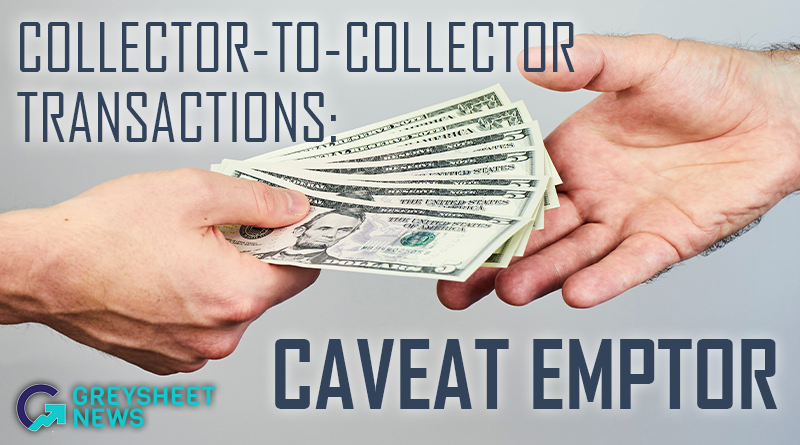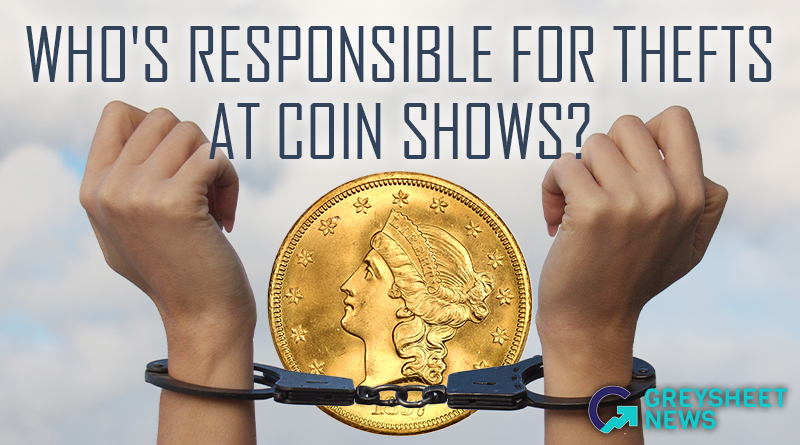Who Takes the Loss When Coins are Lost in Transit?
If coins are lost or stolen en route and never recovered, is the shipper or the recipient legally responsible for the financial loss?
It’s bad when coin shipments don’t arrive intact. Sometimes lost or stolen coins are never found, and anyone from the FedEx driver to the customer’s next door neighbor is a potential suspect. But from a legal standpoint, if coins are lost or stolen en route and never recovered, is the shipper or the recipient legally responsible for the financial loss?
Let’s start with the retail situation, namely a loss of coins in transit to a retail customer who has already paid for them. Dealers usually don’t address this scenario in their terms and conditions of sale. Many dealers require payment of extra fees for “shipping and insurance,” the “insurance” presumably covering any mishap during shipment. But if there’s nothing in the terms and conditions, who loses out? Under section 2-509 of the Uniform Commercial Code, if a sales contract doesn’t require the seller “to deliver [the goods] to a particular destination,” the risk of loss passes when the seller delivers the goods to the carrier, i.e., the shipping company, leaving the customer out of luck. And the courts have been very clear that mere placement of a shipping label doesn’t convert every retail sale into a “destination contract.” If, however, the sale was a “sale on approval,” UCC sections 2-326 and 2-327 provide that the seller bears the risk of loss until the buyer accepts the goods which, of course, would generally be after good delivery has taken place. Again, dealers should understand that providing customers an unconditional right to return goods for refund or credit doesn’t transform sales into approval sales. As one court stated, “there must be some provision or objective fact demonstrating an intent that, notwithstanding that the buyer has paid for the goods, they do not ‘belong’ to the buyer until the buyer approves them.” So in the absence of any specific agreement between the parties, in normal retail sales the risks of loss passes to the buyer, who must buy his or her own insurance for the shipment or otherwise bear an in-transit loss.
What about shipments between dealers? Again, the first place to look is any specific terms and conditions between the dealers. If none exist, we start with the same basic rule under UCC 2-509, namely that in contracts which aren’t “destination contracts,” delivery to a carrier is sufficient to pass the risk of loss to the receiving dealer.
But what if the goods are delivered and not accepted by the buyer, and the loss occurs during the return shipment to the seller? Here the Code distinguishes between “sale on approval” and “sale or return” situations. Under UCC 2-326, goods delivered primarily for “use” are considered “sales on approval” and those delivered primarily for “resale” are “sale or returns,” even though in either case the buyer has the right to return goods. The differences between the two situations are rather stark when goods are lost during return shipment. If the sale was “on approval” and the buyer notifies the seller that the goods are being returned, the return shipment is at the seller’s risk, the only condition being that a buyer who is a dealer must follow the seller’s reasonable instructions regarding the shipment. If, however, the sale was a “sale or return,” i.e., which always is the case for wholesale buyers but rarely for retail buyers, the buyer bears the risk of loss during the return shipment, plain and simple.
There’s a bottom line here, of course, which is to adequately insure shipments and also to make clear agreements regarding who bears the risks of in-transit losses.

Download the Greysheet app for access to pricing, news, events and your subscriptions.
Subscribe Now.

Subscribe to The Greysheet for the industry's most respected pricing and to read more articles just like this.
Author: Armen Vartian
Related Stories (powered by Greysheet News)
View all news
Although dealers and collectors benefit greatly from “meeting” each other online, it is important to recognize some of the differences a buyer and seller's status confers on their respective legal rights and responsibilities.

In the U.S., the law relating to “found” items is regulated by each state, but certain principles are consistent.

Courts have held that a show promoter has no legal duty to protect the property of dealers or collectors on a bourse floor.









Please sign in or register to leave a comment.
Your identity will be restricted to first name/last initial, or a user ID you create.
Comment
Comments